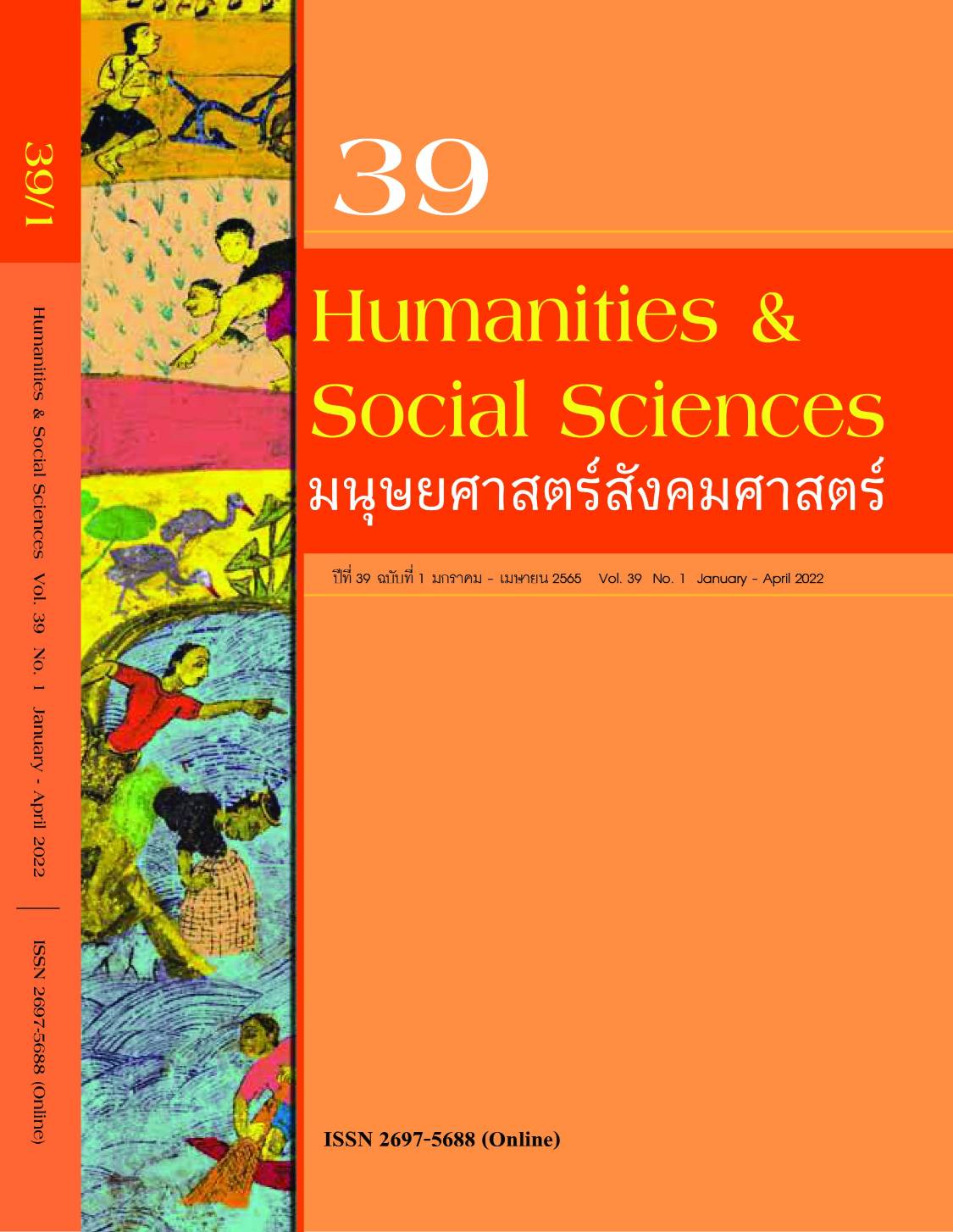ภววิทยาของความสุขและสุขภาวะที่ดีในปรัชญาชีวิตแบบญี่ปุ่น
Ontology of Happiness and Well-Being in Japanese Philosophy of Life
Keywords:
ontology, happiness, well-being, Japanese philosophyAbstract
Abstract
Many studies about happiness and well-being that are solely based on statistical methods in Japan suggest that the subjective senses of happiness are not correlated with the objective indicators of well-being. This contradiction alternates the study of happiness and well-being in Japan turn back to an ontological attitude such that the attention is paid to the understanding of the nature of life that is existing in the world as being in the here and the now. The result of the study presented in this work shows that it is similar to Heidegger's fundamental ontology that pays attention to the understanding of the essence of Dasein as being in the world.
Keywords: ontology, happiness, well-being, Japanese philosophy
References
เบท เคมป์ตัน. (2563). วะบิ ซะบิ แด่ความไม่สมบูรณ์แบบของชีวิต [Wabi Sabi: Japanese Wisdom for a Perfectly Imperfect Life]. (วุฒิชัย กฤษณะประกรกิจ, ผู้แปล). 2nd ed. กรุงเทพฯ: บิบลิโอ.
เพ็ญศรี กาญจโนมัย. (2525). ชินโต : จิตวิญญาณของญี่ปุ่น. 2nd ed. กรุงเทพฯ: ภาควิชาประวัติศาสตร์ คณะสังคมศาสตร์ มหาวิทยาลัยเกษตรศาสตร์.
เพ็ญศรี กาญจโนมัย. (2538). ญี่ปุ่นสมัยใหม่. กรุงเทพฯ: ภาควิชาประวัติศาสตร์ คณะสังคมศาสตร์ มหาวิทยาลัยเกษตรศาสตร์.
เพ็ญศรี กาญจโนมัย. (2540). สังคมและวัฒนธรรมญี่ปุ่น. กรุงเทพฯ: สำนักพิมพ์มหาวิทยาลัยเกษตรศาสตร์.
เลนาร์ด โคเรน. (2562). วะบิ-ซะบิ [Wabi-Sabi for Artists, Designers, Poets & Philosophers] (สายพิณ กุลกนกวรรณ ฮัมดานี, ผู้แปล). กรุงเทพฯ: โอเพ่น โซไซตี้.
สมาคมส่งเสริมเทคโนโลยี (ไทย-ญี่ปุ่น). (2547). พจนานุกรมญี่ปุ่น-ไทย. 4th ed. กรุงเทพฯ: ภาษาและวัฒนธรรม.
เสฐียร พันธรังษี. (2555). บูชิโด จรรยาของชนชาติทหาร ดวงวิญญาณของญี่ปุ่น. 6th ed. กรุงเทพฯ: ศยาม.
Beistegui, M. (2004). Truth and Genesis: Philosophy as Differential Ontology. Bloomington: Indiana University Press.
Besser, L. (2012). The Philosophy of Happiness: An Interdisciplinary Introduction. New York: Routledge.
Bowman, J. (2017). Philosophy and Happiness: How Philosophy Can Bring Felicity. United States: Johnlbowman.
Chernyakov, A. (2002). Ontology of Time: Being and Time in the Philosophies of Aristotle, Husserl and Heidegger. New York: Springer.
Gakken. (ed.). (2015). Dictionary of Contemporary Japanese Usage [現代実用国語辞典]. 3rd ed. Tokyo: Gakken Plus.
Holowchak, A. (2004). Happiness and Greek Ethical Thought. New York: Continuum.
Kaipayil, J. (2003). Human as Relational: A Study in Critical Ontology. Bangalore: Jeevalaya Institute of Philosophy.
Kodansha. (ed.). (1996). Keys to the Japanese Heart and Soul [英語で話す「日本の心」-和英辞典では引けないキーワード 197]. Tokyo: Kodansha International.
Mathews, G. (2017). “Happiness in Neoliberal Japan.” Pp. 227–242 in Happiness and the Good Life in Japan, edited by W. Manzenreiter and B. Holthus. London: Routledge.
Random House (ed.). (1996). Random House Webster’s Pocket Japanese Dictionary. New York: Random House Reference.
Robert, E. and Pilgrim R. (2018). Japanese Religion: A Cultural Perspective. 2nd ed. London: Routledge.
Roemer, M. (2010). “Religion and Subjective Well-Being in Japan.” Review of Religious Research 51(4), 411–427.
Seligman, M. (2011). Flourish: A Visionary New Understanding of Happiness and Well-Being. New York: Free Press.



